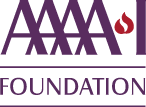Interview with Sarah E. Henrickson, MD, PhD


Sarah E. Henrickson, MD, PhD
Children’s Hospital of Philadelphia
Project: “Defining Exhaustion and Immunometabolic Alterations in Primary Immunodeficiency”
$240,000 paid over 3 years
Award Term: July 2018-June 2021
What is the goal of your research?
 The overall goal of my research is to understand how T cell dysfunction impacts baseline health in children and adults who are born healthy and those who have compromised immune function. From there, I want to understand if there are patterns of poor function in T cells across different primary immunodeficiencies and whether we can target those shared mechanisms of dysfunction therapeutically to improve their overall medical status.
The overall goal of my research is to understand how T cell dysfunction impacts baseline health in children and adults who are born healthy and those who have compromised immune function. From there, I want to understand if there are patterns of poor function in T cells across different primary immunodeficiencies and whether we can target those shared mechanisms of dysfunction therapeutically to improve their overall medical status.
T cell dysfunction more generally can include T cell exhaustion. There’s been a lot of work in T cell exhaustion in other settings, for example in oncology and chronic infections, where T cells stop responding properly to an antigen that is chronically present. We are now learning how to turn those T cells back on to get proper responses to those chronic antigens. In this project, what I’m interested in understanding is whether there is a similar effect in a subset of primary immune deficiencies where the immune system is tricked into thinking that there is a chronic infection due to increased T cell receptor signaling or decreased inhibitory signaling. If that led to exhaustion, we could potentially use that as a therapeutic target for these patients.
While a number of primary immune deficiencies, like severe combined immunodeficiency, are optimally treated with hematopoetic stem cell transplantation, it’s not appropriate or effective for all conditions and it’s a very significant endeavor that brings a risk of morbidity and mortality. While we have targeted therapies for some primary immune deficiencies, if we can find new ways to treat our immune deficient patients using the patterns in immunometabolic dysfunction in their immune cells, rather than having to make a new drug for each monogenic disease, we can make more rapid progress in treatment.
Have you always been interested in medical research?
I began with an interest in basic research exclusively, but through research experiences in college and in my own family with medical illness, I realized there was a really interesting career path wherein you could take care of patients and work in research simultaneously. The balance of direct interactions with patients and pursuing longer term goals in the lab works well for me.
Would you recommend the Faculty Development Award to other young investigators?
It’s a wonderful funding mechanism for an investigator with a new research question they want to investigate more deeply. For this work specifically, there are limited mechanisms that allow detailed investigation into rare diseases in human immunology, especially from a systems immunology perspective. This grant is perfect for junior allergy/immunology faculty with novel questions as they start their independent careers.
How has the Faculty Development Award helped you?
This award reinforces the power of an idea that has been bolstered by many mentors, which is if you don’t ask – the answer is always no. This funding is allowing me to focus on an area that I find fascinating and has facilitated the expansion of my research endeavor to follow my core passion in improving the mechanistic care of patients with primary immunodeficiency.
Who are your mentors?
E. John Wherry, PhD, and Kathleen E. Sullivan, MD, PhD, FAAAAI.

